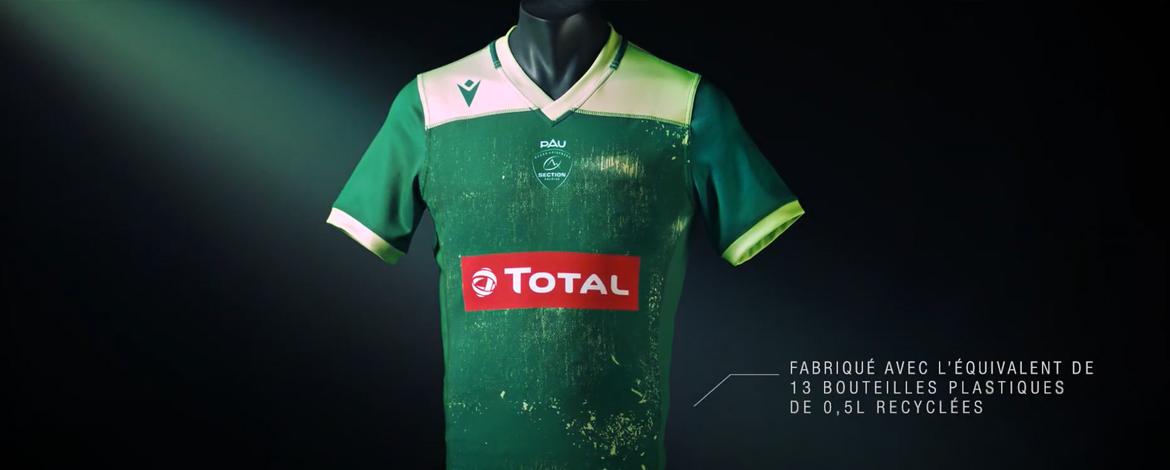13/08/2020 News
TotalEnergies creates a fully recycled rugby shirt for supporter of the Section
“The Greenest Rugby Shirt” is symbolic of the long-term commitment to an eco-responsible approach by the Section, backed by TotalEnergies, the major partner for over 30 years, and accompanied by the sports equipment supplier, Macron.
For the 2020-2021 season, the club is going to market the first replica TOP 14 league shirt, made entirely from recycled plastic materials!
Shared values
Being a partner means first and foremost sharing the same values. The values of rugby, the leading sport in our region, and those of the Company in terms of environmental challenges.
The “Green Team Section” fans will therefore soon be able to proudly sport their new supporters’ shirt made with the equivalent of 13 recycled half-liter bottles.
The green approach is set to last and, to make sure it does, the Section is going to organize actions in the field and awareness-raising sessions on protecting the environment and collecting plastic waste, in liaison with TotalEnergies and Macron.
The unique rugby shirt will soon be available in the boutique at the Hameau and on the official club site.
A Company commitment
It is important for TotalEnergies to be the driving force behind this kind of initiative, which is much more than a simple symbol. TotalEnergies is actually a founding member of the Alliance to End Plastic Waste. The Alliance groups together around forty companies committed to investing funds to set up solutions to eliminate plastic waste in the environment, and particularly in the oceans. TotalEnergies is also working on all other types of recycling, to develop high-quality recycled polymers.
Locally, TotalEnergies employees from the Bearn region are made aware of the environmental issues through regular campaigns at the office, in the company restaurant, on work sites, in the laboratories and so on. At the CSTJF, their actions contribute to recycling materials and use the energy produced to heat the premises:
- 74% using energy produced.
- 25% reusing materials (figures from 2019).
More articles on the same subject:
- TOTALENERGIES BECOMES A FOUNDER MEMBER OF THE NEW INTERNATIONAL ALLIANCE FOR THE ELIMINATION OF PLASTIC WASTE
- CITEO, TOTALENERGIES, RECYCLING TECHNOLOGIES, MARS AND NESTLE JOIN TOGETHER TO DEVELOP A CHEMICAL PLASTIC RECYCLING LINE IN FRANCE
- PLASTIC RECYCLING: TOTALENERGIES AND PURECYCLE TECHNOLOGIES SEAL A STRATEGIC PARTNERSHIP


